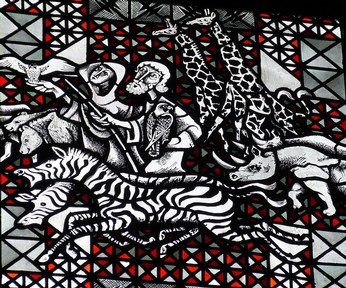Quiz Answer Key and Fun Facts
1. According to Genesis 49:27, which one of his twelve sons did Jacob call a "ravenous wolf"?
2. In what book in the Old Testament do you read about the wolf and the lamb living together in peace and being led by a little child?
3. According to Judges 15:4-5, to the tails of what type of animal did Samson attach torches to burn the grainfields of the Philistines?
4. According to Judges 7:5, what judge of Israel led three hundred soldiers who lapped water like a dog to a spectacular military victory over the Midianites?
5. What prophet of God declared, "O Israel, your prophets are like foxes in the deserts"?
6. According to 1 Samuel 17:43, what man said to David, "Am I a dog, that you come to me with sticks?"
7. According to Luke 16:21, what was the name of the poor helpless beggar who longed to eat the crumbs that fell from a rich man's table, and had dogs come and lick his sores?
8. Who made the statement in Matthew 7:15 in the NKJV: "Beware of false prophets, who come to you in sheep's clothing, but inwardly they are ravenous wolves"?
9. In two different Gospels, Jesus is quoted as saying, "Foxes have holes and birds of the air have nests, but the Son of Man has nowhere to lay His head." In what two Gospels do you find the statement?
10. Luke 13:30-31 tell of Jesus referring to a man as a fox. Who was the fox He was referring to?
Source: Author
Cowrofl
This quiz was reviewed by FunTrivia editor
looney_tunes before going online.
Any errors found in FunTrivia content are routinely corrected through our feedback system.
